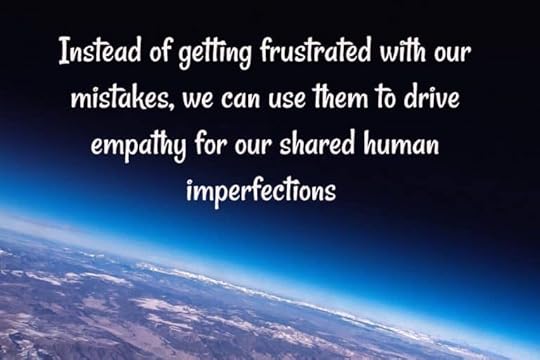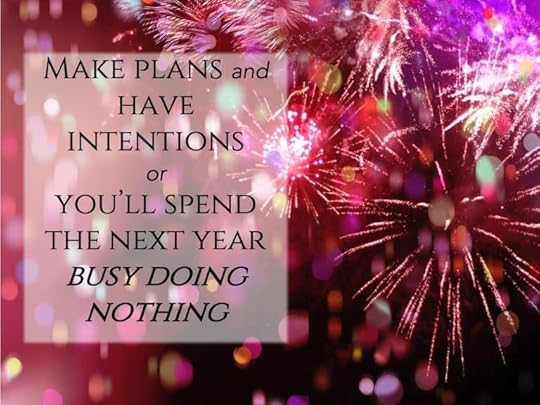Tina Hallis's Blog, page 8
February 6, 2022
I Yelled “Get Out!” at My Little Daughter

When my daughter was in elementary school, I was fortunate to work from home. That meant I was able to meet her at the door to greet her, ask about her day, and if she wanted a snack.
One day, I was on the phone trying to figure out a very expensive doctor bill. The insurance company told me the problem was with my doctor and how they had coded the visit. The doctor told me that I needed to figure it out with my insurance. I felt like I was getting the run-around; constantly being put on hold and transferred, with no solution in sight. My frustration was through the roof!
Suddenly, I heard a sound behind me. I turned to see my little daughter standing in the doorway of my office. I had totally forgotten about her coming home soon. I was still on the phone and still fully irritated at the situation when she said, “Mommy, I’m hungry.”
At that moment, I had no patience or empathy. My saboteurs were in full control. Instead of calmly telling her I needed a few minutes, I scowled and yelled at her to “GET OUT!” I instantly felt horrible.
It’s so much easier to be kind when I’m not stressed. It’s so much easier to choose a helpful response when I’m not hungry, tired, irritated, or upset.
I’ve learned that when I keep my positivity battery charged, when I take care of myself, when I take time to feel good, everything else gets easier. And I’m nicer to be around.
What could you do right now to charge yourself up? To make yourself feel better? Check out this link for ideas to get you started.
January 30, 2022
My Wish for You – PERMA

Think of someone you love. What do you wish for them? Do you wish them good health? Happiness? Meaning? Success? I think of my 16-year old daughter. More than anything I want her to be happy. I want her to find a career she loves and that gives her purpose. I want her to achieve her dreams.
Are these the same things you wish for yourself? It’s common to think of what we want for our loved ones, but we should also consider our own life. What do you need to experience your best life?
Martin Seligman, considered the father of Positive Psychology, believes there are five elements that can help people reach a life of lasting fulfillment and wellbeing. He uses the acronym PERMA.
PERMAP = Positive emotions – These are the emotions that feel good, like happiness but also curiosity, serenity, gratitude, pride, and hope. They make us feel good about ourselves and our world.
E = Engagement – When we’re engaged, we’re entirely absorbed in the present moment, creating a ‘flow’ of blissful immersion into the task or activity. This type of ‘flow’ of engagement is important to stretch our intelligence, skills, and emotional capabilities.
R = Relationships – Relationships and social connections are one of the most important aspects of life because we are social animals that thrive for connection, love, intimacy, and a strong emotional and physical interaction with other people.
M = Meaning – Meaning gives us a reason for our life and a sense that there is a greater purpose to life. Everything is not just about us.
A = Accomplishment – Having goals and overcoming challenges in life can help us accomplish things that give us a sense of achievement, pride, and fulfillment.
Reflect on each of these areas and consider if any of them could use some improvement. What actions can you take to help you reach your best life?
January 22, 2022
A Good Memory or a Bad Memory? You Get to Choose

Our two cats are getting stir crazy. The colder weather here in Wisconsin is keeping them inside so they have pent-up energy. That means instead of sleeping in a chair, they’re getting into trouble, knocking things off of the dresser, and being where they’re not supposed to be. So I decided to wiggle a string for them like I did when they were kittens. They were actually jumping and trying to catch it! It brought back many fun memories.
My mind went back to times when I would sit on the floor with one of the kittens. They would attack me as I moved my hands or their toys. Then they would jump straight in the air when I attacked back. I love little kittens! They’re so playful, fuzzy, and cute.
One time, we had two little kittens at the same time, Appollo and Athena. Watching them play together was a real hoot! They did everything together from eating, sleeping, and even using the litter box. They would run down to the garden with me and play among the plants and chase bugs. If they lost track of where I was, one of them would meow plaintively until I called to them so they could find me.
I’m still sitting in my office typing on my computer and it’s still cold outside. But there’s a warm smile on my face as my mind enjoys remembering these simple but fun times.
I could have chosen a different path for my memories with the cats. I could have been annoyed and thought of the curtains they’ve destroyed or the times they’ve woke me up in the middle of the night. Or I could have remembered the heartbreak of losing a past pet.
As you know, our survival instinct can easily lead us to a negative memory where we relive past stress and hurts. But we have the power to override this instinct and choose to relive past joy and fun instead.
What happy memories can you choose to relive right now?
January 16, 2022
What If This Is the Reason We Make Mistakes?

I’m sure you’re an awesome driver and never make mistakes. Other drivers are lucky to have you in their midst!
And I’m sure you’ve never forgotten an appointment or mixed up the times or dates of a meeting. You’ve never made someone else wait for you.
And you’ve never said anything hurtful or insisted you were right when it didn’t really matter.
Or . . . maybe you’re like me and you do make mistakes. And maybe you beat yourself up and feel bad.
Or maybe, instead, you use it as a reminder that we’re all human, including yourself. And that the next time someone else messes up, you remember your own past blunders, and you’re able to find some compassion and understanding.
I’ll be honest – this is hard for me. I have high expectations of myself and others. I can be impatient when I have to repeat myself because my daughter didn’t hear me or understand; until it’s my turn to ask what she said.
I can be frustrated when my husband forgets to take out the garbage when he just said he would do it; until I forget to do something for him.
The older I get, the more I realize that we’re all imperfect humans who are doing our best (most of the time), but still fall short. It’s been over eight years since I took my certification course in Positive Psychology with Tal Ben-Shahar. But I’ll never forget his message that we need to give ourselves and others permission to be human.
Be on the lookout this week and notice opportunities to give yourself and others grace when you or they mess up.
January 9, 2022
Is There Such a Thing as Toxic Positivity?

Even though I often emphasize the benefits of increasing our positivity skills, I also want to point out that there are many reasons why it can be good to focus on the bad. Denying, minimizing, or invalidating negative emotions experienced by ourselves and others can be harmful and is considered toxic positivity.
For example, feeling bad or upset can be a signal that something is wrong; that we need to take action or make a change. The stress from realizing your project deadline is coming up fast is a signal you need to do something. Another signal could be feeling upset because you think your partner doesn’t appreciate you enough. Maybe it’s time to have a heart-to-heart talk with them, or it could be simply shifting your focus to the things they DO to show appreciation (like making you dinner). Feeling sad or upset about losing something important to us can also be a trigger, perhaps to remind us to feel grateful for what we still have.
Another example of when bad can be good is when the risk is high and it’s better to be more cautious. Instead of being optimistic that the roads aren’t too icy to go shopping, or that the campfire has died down enough to go to bed, or that your family knows where you are – – pay attention to that negative nagging doubt and worry. Scientists agree that there are times when we are better off feeling concerned or anxious.
While feeling good helps us think more broadly and consider more ideas, negative emotions focus our minds on the problem. They kick us into survival mode, providing us with anxiety and stress hormones that can give us the energy to deal with the problem. The trick is to not get so overwhelmed by the anxiety that it immobilizes us. This is where several deep breaths can be a big help. Let’s say you suddenly realize you only have 2 days to finish that big project and a wave of stress washes over you. That feeling of overwhelm can help you focus on finishing the project and give you the determination to get it done.
So the next time your feeling frustrated, stressed, or down, consider what information your emotion is trying to tell you. If it serves a purpose, think of what it means and what you should do. Just don’t let it take you into a downward spiral.
January 2, 2022
2022, Here We Come! Do You Know Where You’re Headed?

Days rush by and so do the years! I’ve noticed that if I don’t take time to reflect and plan, the time flies by without any direction from me. So I if I want to design the kind of life I want, I need to be purposeful.
Last week I talked about reviewing the past year before starting the New Year. Today, my husband and I sat down together to make a list. We had so much fun thinking back on our experiences, projects, and adventures! What a valuable and fun exercise! It was the perfect springboard to look ahead and think of what we would like to do in 2022.
Here’s how the list broke down into categories for us.
2021 Experiences: The list ranged from the trip my daughter and I took out east to look at college campuses to raising broiler chickens for the first time to taking Positive Intelligence training.
2021 Procurements: Here we captured major expenses like our popup camper and more minor investments like a new heavy bag for a kickboxing class I took via Zoom.
2021 Perspectives and Intentions: For me, these included intentions like staying active with my yoga classes and video workouts with my daughter. I also added my efforts to pause, notice, and choose my responses instead of reacting.
This discussion got our wheels turning and made it easier to think ahead to the upcoming year. We kept coming up with ideas for 2022! We organized them into the following areas.
2022 Plans and Projects: This list spanned a variety of projects from new flooring in the bathroom to fixing the deck, and plans to look for more training opportunities and conferences to attend.
2022 Procurements: We couldn’t think of anything we needed or wanted at this time.
2022 Perspectives and Intentions: I want to continue focusing on pausing, noticing, and choosing my response. But I also want to work on being less emotionally tied to outcomes and more open to options. This could apply to things like where my daughter wants to go to college or even where some of my new health training might take me.
How about you? Do you know where you’re headed in 2022? Have you taken time to think about the kind of 2022 you’d like to have?
December 24, 2021
Before You Start Your New Year . . .

One of the great things about writing a holiday letter to share is it makes you think back on the past year. What happened? What changed? What did you do that was different or interesting? In our busy culture, we seldom slow down enough to appreciate past experiences.
I’m grateful for my dear friend Susan Young. A few years ago, she suggested that we get together and think about our goals for the coming year. But first, she recommended we review the past year. Together, we made a list of all the things we had accomplished and experienced in our work, our relationships, and our home life. It was so fun and rewarding to think back on the good and the challenging. I had achieved several goals and had overcome several challenges that I had forgotten until I spent some time reflecting.
So as 2021 winds down and you get ready to launch into a new year, take time to review. Even if some situations didn’t go as you wanted, consider how you grew or learned from the bumps in the road. Be sure to savor your successes and those moments you enjoyed. Dr. Darlene Mininni, author and professor on happiness and well-being, recommends reflecting on the following as the new year begins:
How are you better? Maybe you gained new wisdom or strength from a challenging experience or improved on a quality you value.What do you have? Before you think about what you wish you had, consider what treasures you already possess. This could include having a reliable car, a warm place to live, or even that favorite pair of shoes.Feel it. When you think about the positive events from last year, take the time to savor them. Replay the experience and feel the positive emotions again.Wishing you and yours a new year filled with peace, joy, love, and light!
December 19, 2021
The Surprising Connection Between Compassion & Setting Boundaries

Have you ever had an “Ah ha!” moment where your beliefs and understanding of something were suddenly clear? That’s how I felt when I watched Brené Brown’s video on boundaries. I’m grateful that my husband saw this and shared it with our daughter and me ?.
Brené shares how one of the most shocking findings in her work was the idea that the most compassionate people she interviewed over the last 13 years were also absolutely the most boundaried.
What does that mean? Brené says it means setting boundaries with what’s OK and what’s not OK. It’s about being direct while being kind and generous.
It’s about assuming people are doing the best they can instead of getting resentful and frustrated with them. And if their “best” is outside of your boundary, you’re able to lovingly let them know. You can do this from a place of calm because you believe that they’re not trying to be rude, mean, manipulative, etc.
It may not sound easy, but Brené points out that assuming the best about others is inherently a selfish act because the life you change first is your own. She acknowledges that it’s hard because we don’t want to disappoint others and we’re worried about what they’ll think of us. But setting boundaries and being generous with our assumptions about others is key to self-care.
Has anyone ever kindly set a boundary with you? I had a friend who was trying to create more free time in her life, and she told me that she had to quit a group we were both in. I was sad, but I was not offended because she explained her goal. And as her friend, I wanted what was best for her.
What if you were to try this approach a few times in the next couple of weeks? How could it make your life easier? How could it help people better understand you and your needs?
December 11, 2021
A Quick Hack for Changing Your State

Try this experiment. Stand up, raise your arms open wide to the sky. Look up with a big smile on your face and say, “I’m so sad!”
Now try this experiment. Sit down and slump over in your seat. Hang your head and put a frown on your face. Now whisper in a sad voice, “I’m so happy.”
Which force has the strongest influence on how you feel – your words or your body? Most people report that their expression and the posture of their body overpower their words.
But what if you combined your words and body? And what if you also focused on something that makes you feel good? Maybe it’s something or someone you’re grateful for. Or maybe it’s something you’re looking forward to.
It’s an easy experiment. Right now, think of something or someone that makes you happy, that you appreciate. Visualize the details. Imagine the sounds and smells associated with this person or thing. Soak it in for a minute or two. You could even try playing a song that makes it easier for you.
Now, keeping that visual, stand up, raise your arms open wide, smile, and say a phrase related to your vision. Maybe it’s, “I’m so grateful!” Or, “I feel great!” You could add a few deep breaths and repeat the phrase as many times as you want.
Tony Robbins talks about how we can use these three factors, body, language, and focus, to “change our state.” What state would make your day nicer? What state would make solving problems easier, What state would make your relationships better? I’m betting the answer is NOT a state of stress, frustration, or discouragement.
Of course, you may want to do this hack when you can be alone or close a door so people can’t see you. Or you could try doing this together with your family or friends.
December 4, 2021
Do You Appreciate Your Time in the Water of Life?

There are two young fish swimming along who happen to meet an older fish. The older fish nods at them and says, “Morning boys, how’s the water?” The two young fish swim on for a bit and then eventually one of them looks over at the other and asks, “What the hell is water?” — David Foster Wallace.
I recently rediscovered this fable when I stumbled upon David’s 2005 commencement speech to Kenyon College. He says the point of the story is that often the most important realities are the hardest to see and the hardest to talk about.
What ideas does the parable bring to mind for you? As I think about the fish, I envision that the fish’s water is like our own human experience. We’re surrounded by this life with its experiences, adventures, and challenges, but we’re so busy “swimming” along, immersed in our day-to-day busyness, that we forget to appreciate it. Our life is such an obvious reality that we take it for granted.
Since David is speaking to a college graduating class, he ties his point to education. He says education is not so much about knowledge as it is about how to think. “It means being conscious and aware enough to choose what you pay attention to and to choose how you construct meaning from the experience.“
I don’t know about you, but I sure could have used that kind of education when I was younger. I hope others don’t have to wait until they’re in their 40s or 50s before they realize the importance of how to think and what to think about!
A few years after this speech, David took his own life. Does that mean he failed and we shouldn’t listen to his advice? Or does it mean he truly knew what it meant to be human and to struggle to enjoy his time in the water?
This week, try to be aware of the “water” all around you and find more moments to appreciate this amazing experience of being human, of experiencing peace and stress, enthusiasm and melancholy, gratitude and frustration. It’s all part of our time in the “water.”



